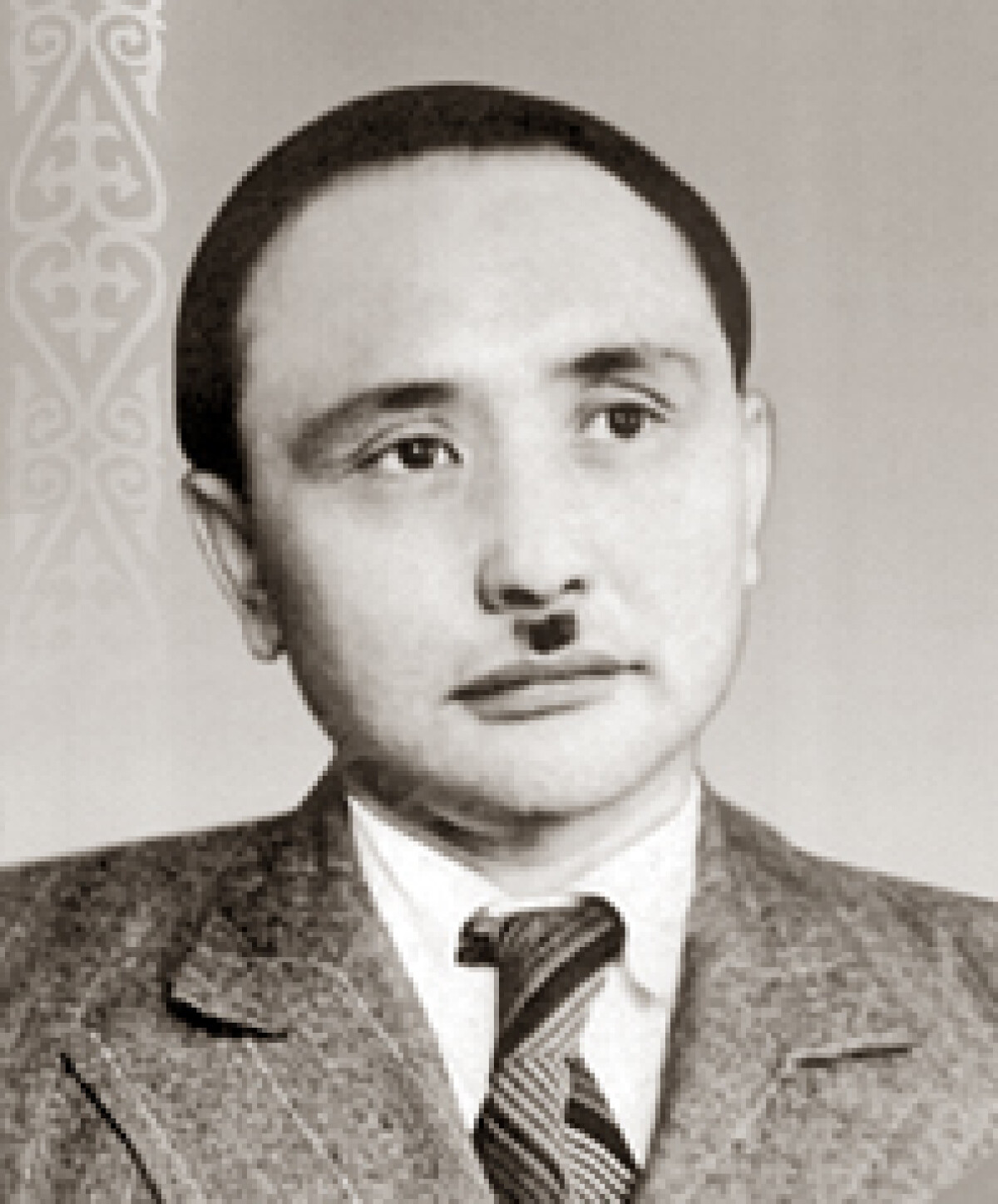Shashkin Zein
Zein Shashkin - prose writer and playwright (was born in 1912 in Bayan-Auyl area, Pavlodar region in a family of poor peasant). In 1920 — 1930 future writer studied at high school, then at the Moscow publishing institute and the Moscow institute of history, philosophy and literature.
For the first time on pages of the press Zein Shashkin has acted as the poet. Then he went in for literary study and literary criticism. Besides numerous articles and reviews he, together with E. Ismailov, has written the textbook according to the theory of literature for the Kazakh higher education institutions and independently — the monograph about poetic skills of Abay.
Blossoming of art works of the writer belongs to 50th and 60th. He was attracted by a figure of the ardent revolutionary, fighter for the Soviet power in Semirechye Tokash Bokin. He devotes him the story “There Has Come Morning”. Together with the director M. Goldbpat he wrote plays “Steppe Glow” where main character is Tokash Bokin too. The play with success spread in Alma-Ata and on a scene of a number of regional theaters. Further development of this subject has led to creation of the novel “Tokash Bokin” and film script “Disturbing morning” on which after death of the writer the feature film has been put.
In the same years Z. Shishkin has written novel “Темиртау” (“Temirtau”), devoted to working class and the technical intellectuals of Kazakhstan, “Доктор Дарханов” (“Doctor Darkhanov”) lifting acute moral issues, stories and tales — “Актобо” (“Aktobo”), “Вера” (“Belief”), “Дыхание жизни” (“Breath of life”) and others. Works of Z. Shashkina are translated into many languages of nations of the USSR.
The main subject which Z. Shashkin most often addressed is life of contemporaries. So was also in the play “Заман осылай басталады” (“Zaman osylai bastalady”), in novels “Сенім” (“Senim”), “Темиртау” (“Temirtau”). The novel “Temirtau” (1960) reflects productive work, life, daily life of labor collective, the place of the Kazakh woman of new generation in society, their role in modern production, art and culture, in a family, its social, ethical and esthetic views. The novel “Temirtau” is devoted to metallurgists.
The famous Kazakhstan journalist and the publicist Sapar Bayzhanov has made interesting discovery: in Shashkin's archives he has found his notebook in which material about Nursultan Nazarbayev, at that time just young worker of iron and steel works which way to the President was still very far has been built. What it is insight of the attentive writer or just coincidence? Generally, still in 60th years the writer had a plan to write the book about the contemporary – a young metallurgist which in three decades will be fated to become the first President of the sovereign state.
Z. Shashkin has devoted the novel “Доверие” (“Trust” ,1966) to heroic work of subjugators of a virgin soil. Plays “Так начинается эпоха” (“So an Era Begins”), “Сердце поэта” (“Heart of the Poet”) are put on the stages of republican and regional drama theaters. On the basis of his work a feature film “Беспокойное утро” (“Uneasy Morning”) was shot. “Zein Shashkin belonged to that type of writers who are born in literature hardly and infrequently, he possessed persistence of the seeker, knowledge of the scientist, a step and intuition of the artist realist. Shashkin has made the significant contribution to development of modern Kazakh prose, to increase of its art level”, - Nikolay Anov wrote.
The writer was deeply concerned on problems of modern medicine. Not incidentally his large novel “Doctor Darkhanov” (1962) for the first time in the Kazakh literature is devoted to medicine. Work was big achievement of Z. Shashkin. Roman is autobiographical, a prototype of the main character Niyaz Darkhanov was Z. Shashkin. In this novel a lot of place is given to Pavlodar in which the writer has left secondary school. The novel of Zein Shashkin “Doctor Darkhanov” was generally recognized, from pages his Kazakh doctors have for the first time appeared as people of a high public duty, social activity”, - the academician, the doctor of medical sciences S. Balmukhanov wrote.
Share:









